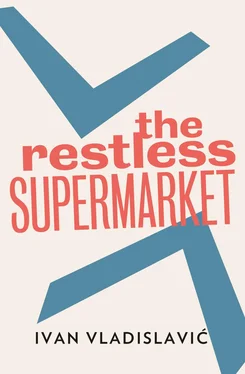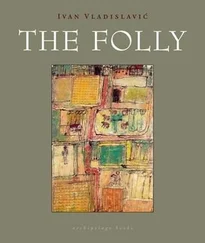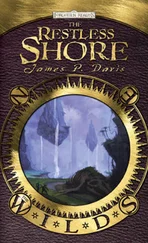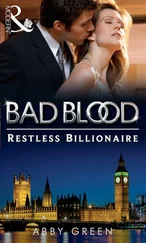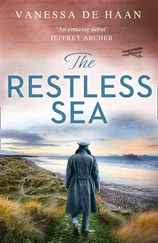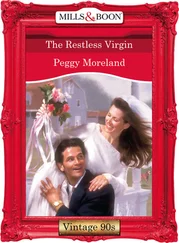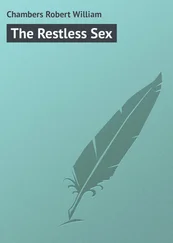In the course of my researches, I wandered into the popular music section, and was soon as engrossed as one could be, given the din issuing from the loudspeakers ranged on all sides. The orchestras had the queerest names, fruit and vegetables, things like the Sweaty Lettuces and the Mango Grooves. By comparison, the ‘Beatles’ seemed rather innocuous, and felicitous too, when one recalled those neat young men in their suits and ties and their coleopterous hairdos. Michael and the Mechanics. Extraordinary. You never knew when such things might come in useful. I’d taken out my notebook to jot them down: absurd nomenclature, popular orchestras. (Absurd, from the Latin surdus , deaf, dull.) Pretty soon a sallow youth with a ponytail and a horsey set of teeth was hovering, looking over my shoulder, pretending that he could read. Probably thought I was acting suspiciously; by then, I was quite groggy from the noise as it was.
‘Do you have any Status Quos?’ I asked. Heard that one on the radio.
‘Of course,’ with a snort. I was surprised he didn’t tap three times with his foot.
‘Well I wouldn’t listen to them if you paid me.’
Floyd and Nomsa came back from the kitchen with bottles of beer and a girl I hadn’t seen before. There are more of them every day, and I confess that they all look rather alike to me. It’s probably the colouring. The new girl struck me only because she seemed much too young to be drinking liquor. She had her fingers curled around the neck of a bottle like a child with a ‘cooldrink’. A small hand glittering with plastic rings that might have come out of a lucky packet. Floyd was wearing a new playsuit with Donald Ducks on it: long shorts down to the knees and a matching shirt, many sizes too big for him. Not hand-me-downs, mind you, from an older brother: they all wore their clothes too big. Errol himself had an immense pair of trunks, in ecru canvas with red piping, of the sort that servants used to favour. The two of them looked like toddlers, very much enlarged. They even had oversized bootees on their feet, excessively padded baby shoes with their tongues lolling, but no laces. Quantities of silver buckles instead, which their clumsy fingers might manipulate more easily than bows. It would cost a fortune to bronze one of them.
These brawny, stubbled men in their rompers looked even stranger next to the girls, who were dressed for the beach, in stretchy pants and tops that were no more than singlets or brassières. Raylene’s slim body was like a teenage boy’s — a boy with a love for physical culture, I might add, for twirling Indian clubs or leaping over hurdles. Even the brown hairs on her arms were too thick and glossy for down. At least Nomsa had some flesh on her. Wessels was prodding that flesh now with a forefinger like a pestle. He had discovered a tattoo of a rose on her shoulder.
‘It’s a Bert Middler,’ Nomsa explained. Whoever he is.
‘No ways. More like a Naas Botha,’ Wessels said. He was chafing away at the tattoo with a rubbery forefinger. ‘Ask Mr T. He knows all about it.’
I’d been reading about rose cultivation in the paper a few weeks before: some rugby-lover had named a bloom after Botha, the fly-half.
I took refuge as usual behind the news.
Then Wessels wanted Nomsa to draw a replica of the rose on his plaster cast and they asked to borrow my pen. I refused. No ways, so to speak. They got one from Moçes instead. He was tiddly. Of no use as a waiter.
I should try to like them, I thought, despite their broken English. In fact, I should try to like them for that, I should find a place for them, not a soft spot, not in my heart, but a well-worn, callused spot, something pachydermatous and scarred, where their shrillness, their abrasiveness, their rough edges might be accommodated without tearing any tissue. I made resolutions to that effect. But they came to nothing, watching the girl Nomsa, a deracinated Xhosa as I recall, crouched over Wessels’s plaster cast, with his stubby toes wriggling like newborn puppies, blindly delighted to be alive. The way she held the pen! It was worse than Wessels himself. You would have thought it was a vegetable peeler.
*
— rama suffix, commercial enterprises: Hyperama … Meatarama … Cupboard-a-rama … Veg-a-rama … Leatherama … Motorama … Computerama …
*
Having once discovered the Café Europa, in the days before Wessels and Errol and everyone else, I made it my haunt. I steeped in its European ambience, in a mild dilution of pleasantly polite strangers, for half a year before I found companionship.
One afternoon, the stranger I would come to know as Spilkin entered the Café and sat at table No. 3, which was identical to mine, a small distance away and also ranged against Alibia. On the wall above that particular table was a sconce, which the muralist had cleverly appropriated as a beacon on one of the city’s rounded hills. The cone of light that the beacon played upon the water — or rather upon the place where the water would have been if the sea in the foreground had spilled out over the wooden dado that hemmed it in like a breakwater — gave that quarter of the city a wartime air, a mood of siege quite at odds with the [George] Ferris wheel and the festive lights on the terraces at the Hotel Grande. The stranger shifted his chair and crossed his legs, so that the searchlight’s beam, I imagined, would drop over his shoulder and illuminate the newspaper that he was about to prop against his knee.
He turned straight away to the page of the Star that carried the cartoons and puzzles, the chess problem, the bridge hand, the crossword. (Never played chess myself.) Then, cocking his head to one side, holding the paper at arm’s length and squinting at it out of the corner of his eye, he began to tear a square out of the page. The action was so awkward and silly, and yet so familiar, that I felt a pang of sympathy for him, as one might for an old friend observed in an unguarded moment. This feeling was so intense that I had to examine him more carefully, smoothing vanishing cream into his wrinkled brow, putting curls back on his crown, trimming the exuberant eyebrows, to see if there was not some more youthful incarnation I would recognize, some immature pentimento. Proofreading him, if you like, for familiar flaws. He looked soft, small and mild, but inquisitive too, almost saucy, like a worldly cherub.
I had been doing the cryptic version of the Star ’s two-speed crossword since my days as a junior proofreader in the Department of Posts and Telecommunications. For as long as I could remember, the cryptic clues had been printed above the grid and the straight ones below. Very sensible. All one had to do to obscure the straight clues, and thus remove the temptation to glance at them, was to fold the page in half. And it was a temptation. So long as the simple clues were visible, hovering on the periphery of vision, the eye was drawn to them, seeking the easy way out, despite the mind’s attraction to the difficult problem. There was something wilful in the human eye that made it impossible to discipline. It would look. I had had the same problem in the old days when I reached the last page of a book. I would have to obscure the final paragraph with my hand or a bookmark to prevent my cheating eye from leaping to it at once. To think of coming all that way by the specified route, step by step, word by word, only to throw away whatever satisfaction there was to be gained, by skipping the last few paragraphs and arriving at the goal ahead of schedule. It was like taking a short cut in the last mile of a marathon.
I went further than most. The habit of years, the respect for rules and regulations, the dedication to matter in its proper order, front and back, that kept me reading steadily from A to B to ‘The End’, also made me read past it, through Appendices and Indices and Advertisements, through Bibliographies and Endnotes and Glossaries, until the endpapers loomed in their blank finality. And even then, nothing was more satisfying than to turn the final page of a tome, thinking that the race was run, and find a colophon, a ‘finishing touch’. A meaningful fragment of the whole, put there to be read, but which no one, perhaps, had ever bothered to read, by which I mean to scan deliberately, to pass the eye over in full and conscious awareness of these particular shapes, impressed upon paper, now impressing themselves upon the retina and the cortex, and thus upon the soft surface of time itself.
Читать дальше
